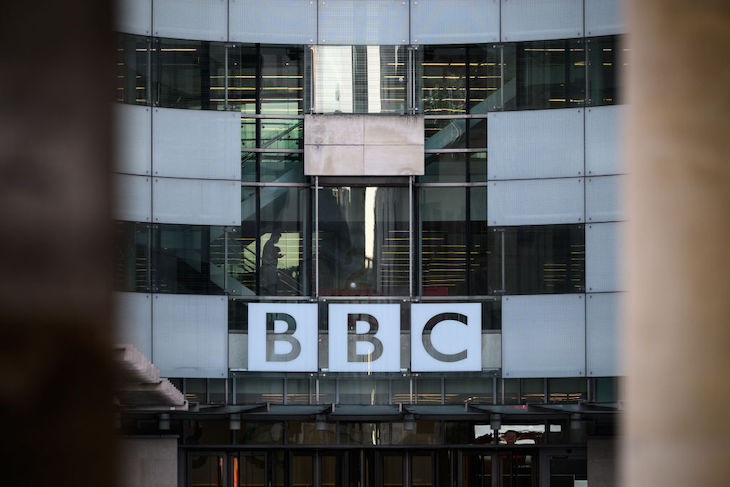Veterans who were dismissed from the armed forces because of their sexuality have criticised the government for the inadequacy of its compensation scheme. With a fund capped at £50 million and potentially as many as 4,000 eligible to seek redress, the average payment would be only £12,500. Military charities have dismissed this as ‘inadequate and unacceptably low’, lacking ‘the sense of justice these veterans deserve’.
This is not an issue from the distant past. When I was young, it was taken as read that openly gay people did not serve in the military. That was not to say we thought the armed forces were 100 per cent heterosexual – the first gay kiss on British television, in BBC Two’s 1974 drama Girl, was between Alison Steadman and Myra Frances playing female soldiers. But there was a formal prohibition on gay people being sailors, soldiers and airmen.
It is more likely that what Lord Etherton intended was a symbolic gesture
The ban was vaguely justified on grounds of discipline, unit cohesion and preserving the chain of command. Superficially there was an air of plausibility about these arguments though they were never supported by empirical evidence. Worse, the enforcement of the policy was often a vehicle for homophobia and bullying. As recently as 1995, some military personnel were jailed for homosexual acts which infringed the policy. In 1998, Stonewall supported a number of veterans in a legal challenge to the ban, and after the European Court of Human Rights judged it unlawful, it was scrapped in 2000.
Of course, there are situations in which military personnel cannot be treated in exactly the same way as civilians because of the roles they are required to perform. But you did not have to be steeped in the history of the Sacred Band of Thebes, an elite 4th century BC infantry unit comprising 150 pairs of male lovers, to grasp that the Ministry of Defence was wrong to discriminate against gay people. That worse abuses came in the wake of the prohibition was grimly inevitable.
In 2022, the previous government commissioned former Master of the Rolls Lord Etherton to review the subject, including the issue of compensation. His report was published in May 2023, drawing on the often-harrowing experience of 1,128 veterans. The then prime minister Rishi Sunak apologised in the House of Commons for ‘the most horrific sexual abuse and violence, homophobic bullying and harassment, all while bravely serving this country’.
It is not my habit to excuse the current government, especially on defence matters, and it is deeply unfortunate that, despite positive noises made during the election campaign, Sir Keir Starmer scrapped the autonomous cabinet-level role of minister for veterans and assigned the responsibilities to one of the most junior ministers at the Ministry of Defence. Nevertheless, on this occasion, the government is implementing the recommendations of the Etherton report: a compensation scheme limited to £50 million was one of the judge’s recommendations.
The controversy highlights a more fundamental issue which has also arisen in connection with slavery and the slave trade. When we talk about compensation or reparations, what do we mean? Is it, in the standard legal sense, an attempt to calculate financial harm, make some monetary estimation of mental and emotional damage, and then directly reimburse individuals for their actual losses? Or is it a more symbolic act of acknowledging wrongdoing and making a financial award to recognise its victims?
The difference is important. In the case of LGBT veterans, the harm was sufficiently recent that it would surely be possible to reach some estimation of the damage and an appropriate sum to be paid. But if that were the case, a limited compensation fund would make no sense because each of the potentially 4,000 claims would have to be calculated individually and to say they would not exceed a certain total would be an arbitrary absurdity.
It is more likely that what Lord Etherton intended was a symbolic gesture, which does not have to be worthless, but which nonetheless is a symbol of recognition, regret and apology rather than direct ‘compensation’. If the government were, God forbid, to contemplate reparations for slavery, this is the only sense in which it could be done. But a gesture is by its very nature arbitrary, and we cannot fault the Ministry of Defence for accepting the precise recommendation of Lord Etherton’s review.
This government does not excel at clarity of thought. As it responds to veterans who have undoubtedly been wronged, ministers must be explicit about the purpose of compensation. If not £12,500, what would be adequate or acceptable? Double that? Quadruple? If it is making a gesture, the government will have to set a limit somewhere, and an obvious total is that recommended by the independent review. It is right that compensation is paid, but it is also the duty of ministers to be practical.








Comments